Over 700 people entered the Herbert University Center on March 7 to listen to Eva Schloss, a woman who not only survived the Holocaust but also ended up being Anne Frank’s stepsister.
The evening started with Rabbi Shmuli Novack, the co-director of Chabad of Southside, which co-sponsored of the event. He opened the evening by giving thanks to all the people who made the program possible, and then invited six children from the Jacksonville Jewish community to light candles to remind us of the lost souls of the Holocaust. Everyone stood for a moment of silence.
A video was then played to remind people of the history of the Holocaust. The video showed that even in the darkness, one cantor created a tune for the prayer Ani Maamin, which means “I believe.” This cantor was singing the prayer on a train heading to the Holocaust death camp, Treblinka. Two young men said they would keep the song alive when they escaped from the train. While only one of the men survived, he brought the tune to America. After the video was over, the Lavilla School of the Arts Chamber Quintet played that same tune created on the death train.
Eva Schloss then came onto the stage with UNF President John Delaney. Although she was short and seemed frail, her story showed her strength and perseverance.
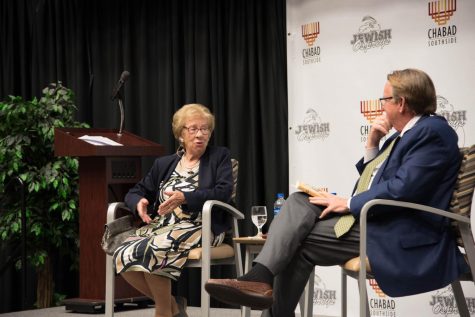
Schloss talked about her illegal immigration into Amsterdam, where she met Anne Frank. They went to school together, and she remarked that Frank was quite young and naive. While Schloss was quiet and shy, Frank was remarked as loud and flirty.
“She was a big chatter box in school. She was called Ms. Quack Quack because she never stopped talking,” Schloss jokingly said. “She nearly wanted to throw that attention to herself, and I told her I had an older brother. She said, ‘Oh, when can I come and meet him.’”
Schloss’s father decided to have her and her brother go into hiding after 10,000 young adults ‘disappeared’ to work in the German work camps. The family had to split up because nobody was willing to hide four people. Schloss hid with her mother while her father and brother hid somewhere else.
“In the two years that I was hiding, we moved about six or seven times,” Schloss said.
Schloss remembers getting false ID cards and sitting for eight hours at a time. Her family was lucky if they could see each other once a month. However, on Schloss’s 15th birthday, they were caught. She was beaten, and all four members of her family were put on a train. All she knew was that they were heading east, but their destination ended up being Auschwitz.
Schloss remarked she survived the initial picking because her mother gave her a hat. At first, Schloss didn’t want to wear a big hat, but it was only moments later when Dr. Josef Mengele was selecting who was healthy and the right age to stay in the camps. The hat hid Schloss’s real age, which led to her survival.
At some point in the camps, Schloss was separated from her mother. Schloss believed her mother died. In one of the three brief moments with her father, Schloss told him her mother died. Schloss was wrong though and found her mother in another camp.
Although the Germans left the camps with the gates wide open, prisoners stayed inside for ten more days until the Russians liberated them. She and her mother stayed in Russia until the war ended.
On the train from Russia back to Amsterdam, she ran into Otto Frank. He knew his wife died, but still believed that his daughters, Anne and Margot, were alive. It wasn’t until afterwards where he realized that his daughters died as well.
Schloss was able to return to her house, a rarity for many survivors. She found out her father and brother died days before the Americans liberated the camp through a letter. Schloss went back to school and became a photographer.
She went through a depressive state, and thought of suicide, but never seriously. She would later meet her husband, Zvi Schloss, in England. He eventually proposed to her, but she refused the offer. It wasn’t until after she found out her mother and Frank were engaged that she finally accepted his proposal because she wanted the same happiness for herself.
After the event, signed copies of her book, “Eva’s Story” were on sale, and she took pictures with the attendees.
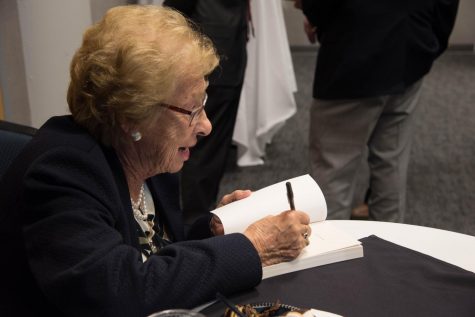
While the talk was quiet and peaceful, extra security was brought in to ensure no violence would occur. Four extra police officers were hired for the event, costing $715 out of the university’s pocket.
—
For more information or news tips, or if you see an error in this story or have any compliments or concerns, contact editor@unfspinnaker.com.



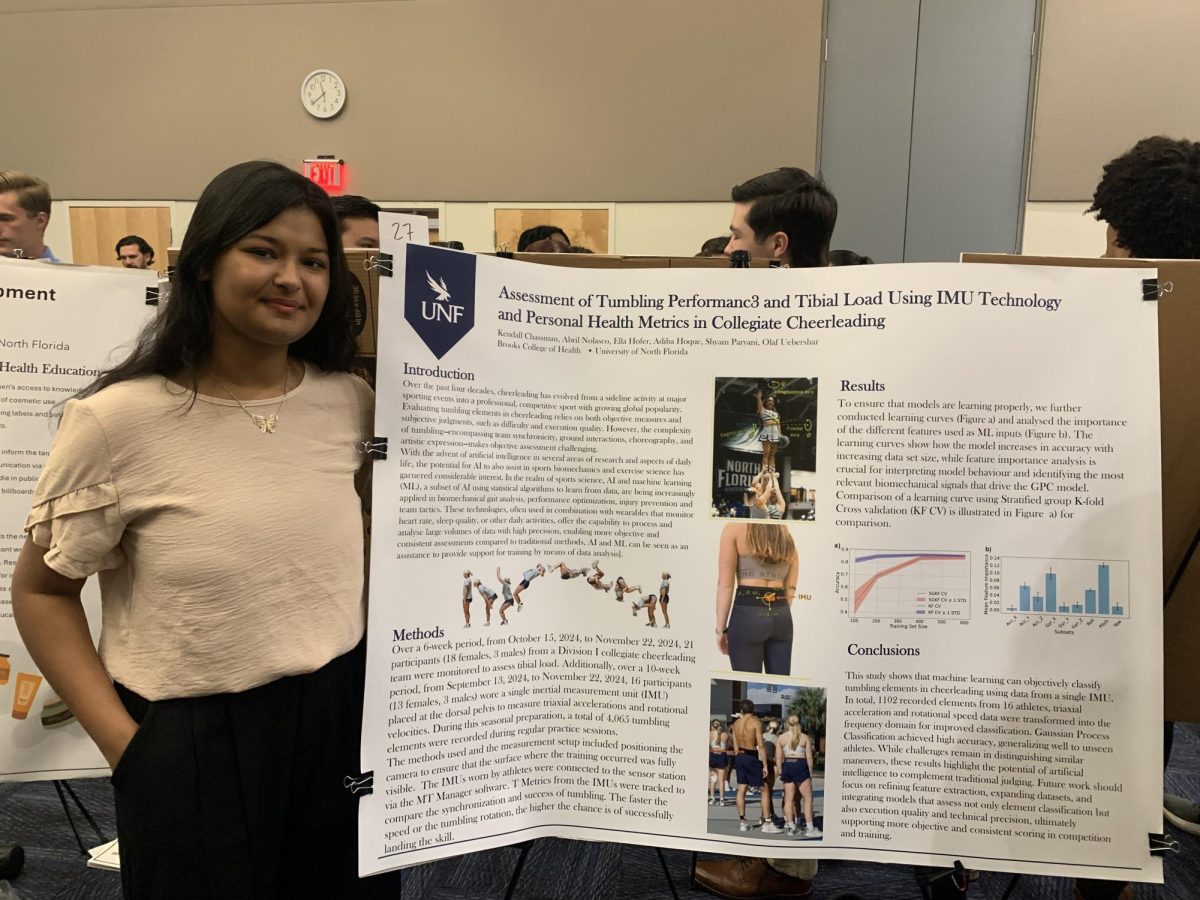

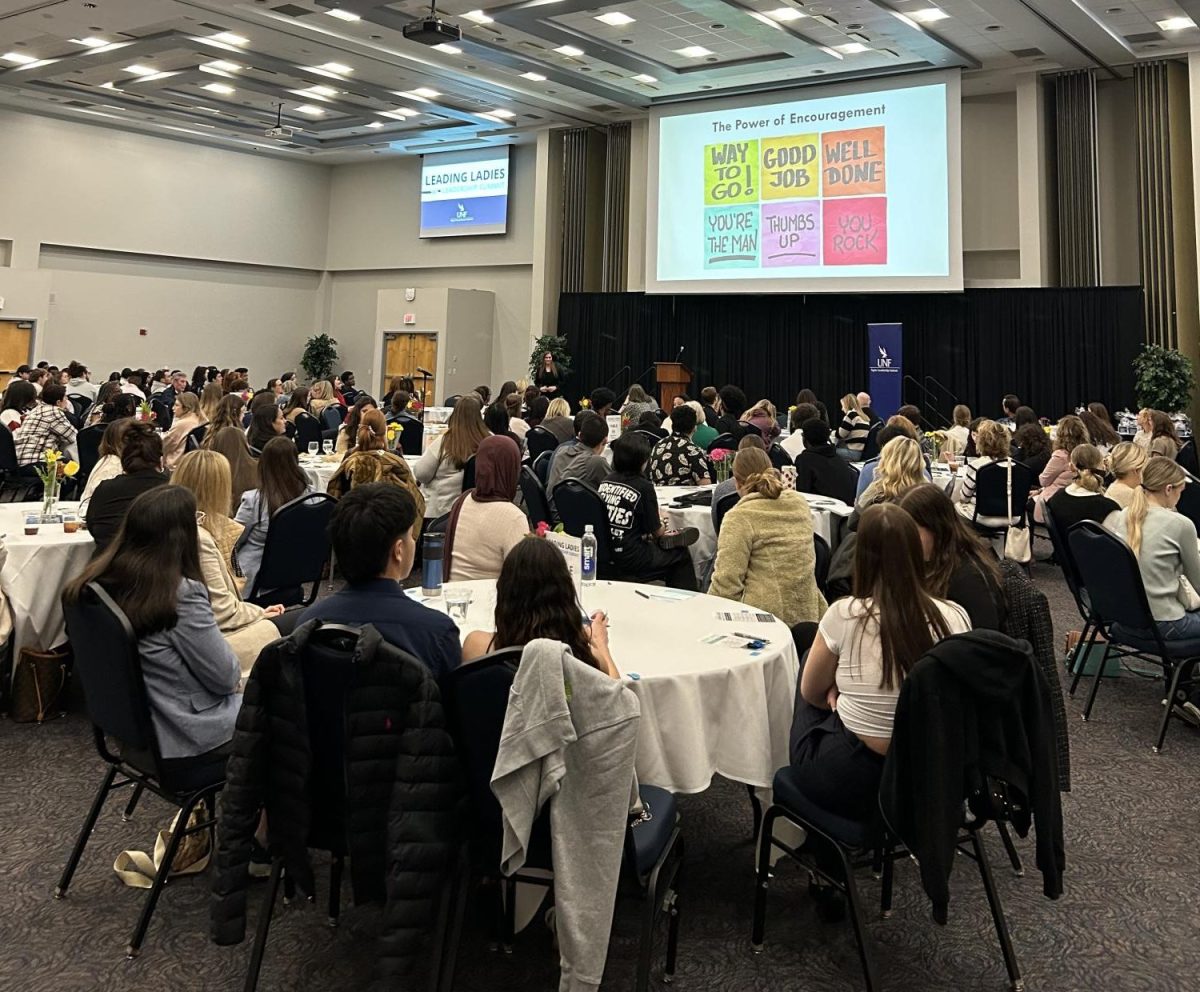

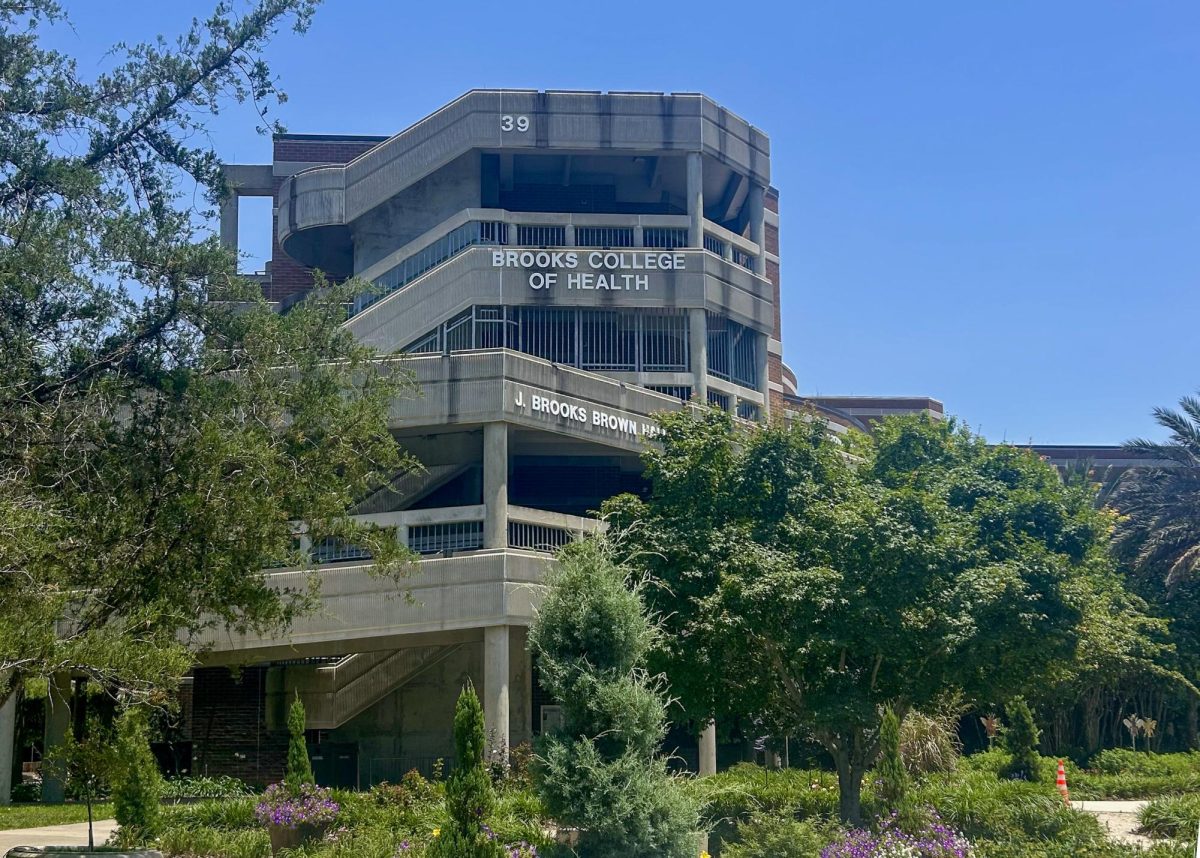








Ken Parker | Mar 14, 2018 at 2:23 pm
If 6,000,000 jews were killed in the holohoax, why did their concentration camp tattoos only have four digits?
Josh | Mar 30, 2018 at 10:44 am
feel free to educate yourself ken https://www.ushmm.org/wlc/en/article.php?ModuleId=10007056